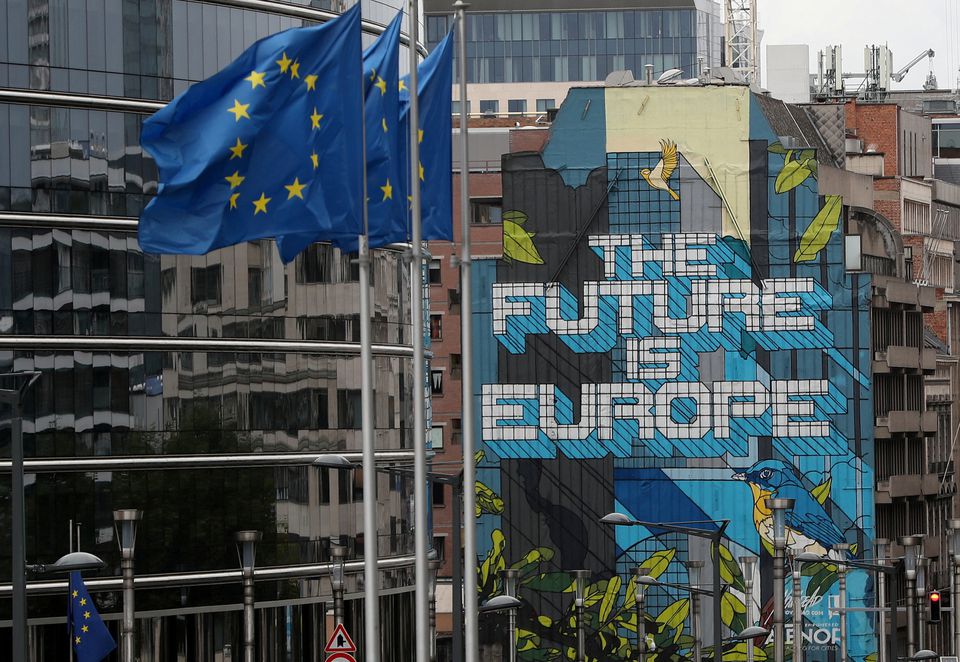BRUSSELS, Nov 25 (Reuters) – European Union ministers warned on Friday that time was running out to change Washington’s plans to grant consumer tax credits for U.S.-produced electric vehicles and other green products.
The EU argues the $430 billion Inflation Reduction Act, to take effect in January, could make the United States a world leader in the electric vehicle market at Europe’s expense. It wants an exception to be made for EU products, as has already been agreed for Canadian and Mexican goods.
Czech industry and trade minister Jozef Sikela said all 27 EU members were concerned and agreed the issue needed to be resolved quickly.
The two sides launched a joint taskforce in early November to address the issue.
EU Trade Commissioner Valdis Dombrovskis told a news conference that he and EU tech chief Margrethe Vestager would assess progress when they meet U.S. counterparts at the U.S.-EU Trade and Technology Council (TTC) on Dec. 5.
“These are no easy discussions, but they must produce concrete solutions,” he said, adding that in the current geopolitical context, with Russia’s war in Ukraine, partners should build alliances in important sectors such as renewables and batteries.
Some ministers earlier expressed hope for a solution by the Dec. 5 meeting, but Dombrovskis said the taskforce would need to continue its work beyond then.
Dutch trade minister Liesje Schreinemacher said a fully fledged trade war was in no one’s interest.
“We didn’t discuss a deadline, we need time to get out of this situation,” she said.
Swedish counterpart Johan Forssell said the time frame was tight.
“We cannot wait too long until we make a decision… So I think the need for action will be pretty soon,” he said.
French minister Olivier Becht said the U.S. green transition should allow for fair competition, rather than breach World Trade Organization rules and trigger a subsidy race. The act could face a test at the WTO, although no member has yet brought a formal challenge.
“Is there then a concrete course towards answering the EU’s wishes or will we unfortunately be falling short. And if we fall short, we will have to put other options on the table,” he said.









